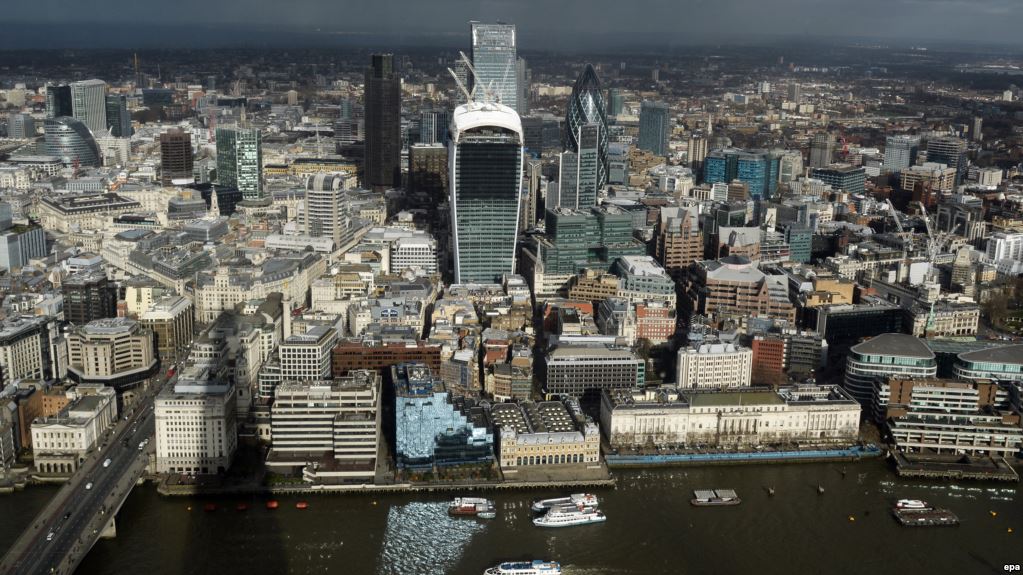
By Polygraph
“Investors from any country can face a situation after such actions of the United Kingdom, when their investments will be called ‘dirty money’.”
FALSE
The United Kingdom has passed a law on “unexplained wealth.” That does not mean they can label any investment as “dirty money.”
On May 21, Russian President Vladimir Putin’s spokesman, Dmitry Peskov, told reporters in Sochi that the British government could start labeling any foreign investments as “dirty money.” Peskov’s comments were in reference to a new British parliamentary report titled “Moscow’s Gold: Russian Corruption in the U.K.”
President Putin and his allies have been able to continue ‘business as usual’ by hiding and laundering their corrupt assets in London,” reads a summary of the report on the Parliament’s official website. “These assets, on which the Kremlin can call at any time, both directly and indirectly support President Putin’s campaign to subvert the international rules-based system, undermine our allies, and erode the mutually-reinforcing international networks that support UK foreign policy.”
Russia’s embassy in London attacked the report via Twitter, implying that Russians were being singled out in the search for illegal assets.
Do MPs want to root out all foreign “dirty money” (and ask awkward questions to some “friends and allies”) or just use selective justice against one specific nationality? pic.twitter.com/KryQKMA6If
— Russian Embassy, UK (@RussianEmbassy) 21 мая 2018 г.
While the parliamentary report focused on money laundering in connection with Russia, it is part of a larger push to combat such money laundering in general, not only Russian. For example, the Organized Crime and Corruption Reporting Project (OCCRP) reported on March 2 that a Central Asian politician had become the first-ever subject of an “unexplained wealth order” issued by the British National Crime Agency (NCA). The order requires the owner of the assets in question to provide evidence that they were obtained legitimately. According to the National Crime Agency, the assets under review have been temporarily frozen.
When the legislation authorizing unexplained wealth orders came into effect in January this year, Transparency International’s Britain office released a list of top properties they believed authorities should investigate. Only one Russian was on the list — then Russian First Deputy Prime Minister Igor Shuvalov.
Shuvalov is suspected to be the owner of two London luxury apartments worth an estimated 11.44 million British pounds ($15.3 million). Other names on the list include the family of Azerbaijani President Ilham Aliyev, a former Libyan major general, the president of the Nigerian Senate, and a former prime minister of Pakistan.
Recently it has been reported that Russian businessman Roman Abramovich, billionaire owner of the Chelsea football team and personal friend of Russian President Vladimir Putin, may be required to explain his wealth in order to renew his British visa.
According to Donald Toon, director for economic crime at the NCA, “unexplained wealth orders have the potential to significantly reduce the appeal of the UK as a destination for illicit income.”
Based on this, it is clear that the British government’s latest measures against foreign money laundering do not single out Russians, as Russia’s embassy in London tweeted.
Unexplained wealth orders (UWO) were introduced in Britain’s Criminal Finances Act, which was passed in April 2017. A UWO requires a respondent to declare his or her interest in the asset being reviewed and provide proof it was obtained it through legitimate means. The orders can be applied to an asset worth 50,000 GBP or more, when there is reasonable evidence to suspect illegal activity. A number of factors must be established by investigators before they can apply to a court to issue a UWO. Therefore, Peskov’s implication that British authorities may label any investment as “dirty money” is false.
By Polygraph






